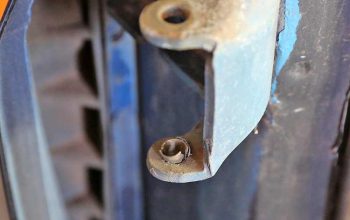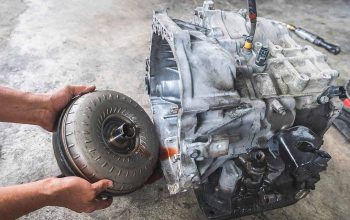If the radiator cap pressure is too high, it can cause damage to the cooling system and lead to coolant leaks or engine overheating. When the pressure in the radiator exceeds the recommended levels, it can result in a blown radiator hose or even a cracked radiator.
The excess pressure can also cause the coolant to boil at a lower temperature, leading to overheating issues. It is important to regularly check the radiator cap and ensure that it is functioning properly to prevent these issues.
Consequences Of High Radiator Cap Pressure
Excessive pressure in the radiator cap can result in various consequences for your vehicle. Firstly, it increases the risk of damaging the radiator itself. The high pressure puts strain on the radiator’s components, potentially leading to cracks or leaks. Secondly, the engine may be at risk of overheating and suffering significant damage.
The radiator cap’s purpose is to regulate the pressure inside the system, so if it’s too high, the engine may not cool down properly, causing it to overheat. Lastly, coolant leaks may occur as a result of the excessive pressure.
This can lead to the coolant system not functioning optimally, potentially causing engine overheating or even complete failure. It is essential to regularly monitor and maintain the correct pressure in your radiator cap to prevent these potential issues.
Signs Of High Radiator Cap Pressure
Excessive pressure in the radiator cap can lead to several signs of trouble. One potential indicator is the presence of steam or smoke emanating from the cap itself. This is often accompanied by coolant overflow or spraying, which may be easily visible.
Additionally, you may notice that your engine temperature gauge rises rapidly, indicating that the cooling system is struggling to regulate heat effectively. These symptoms are crucial warning signs that should not be ignored, as they signify a problem with the pressure in the radiator cap.
It is important to address this issue promptly to prevent further damage to the engine and ensure optimal performance of the cooling system. Regular maintenance and inspection of the radiator cap can help prevent high-pressure complications and subsequent malfunctions.
Causes Of High Radiator Cap Pressure
High radiator cap pressure can lead to various issues with your vehicle’s cooling system. One of the causes could be a faulty radiator cap, which fails to maintain the required pressure and allows excess pressure to build up. Another cause might be a blockage in the cooling system, preventing proper circulation of coolant and causing pressure to increase.
Additionally, combustion gases can enter the coolant, further increasing the pressure. These high pressures can have detrimental effects on the radiator, hoses, and other cooling system components. It is crucial to address the underlying causes of high radiator cap pressure to prevent potential damage to your vehicle’s engine and ensure efficient cooling system performance.
Regular maintenance and inspection of the radiator cap and cooling system can help identify and resolve any issues before they escalate.
Effects On Engine Performance
When the radiator cap pressure is too high, it can have several negative effects on the engine performance. One of these effects is a reduced coolant flow rate. This means that the coolant is not able to circulate as efficiently through the radiator and engine, leading to overheating issues.
In addition, the decreased coolant flow rate can result in a decrease in the engine’s overall efficiency and power output. With less effective cooling, the engine is at a higher risk of failure, as the components may become damaged or worn out more quickly.
It is important to maintain the proper radiator cap pressure to ensure optimal engine performance and prevent potential damage or breakdowns.
How To Fix High Radiator Cap Pressure
Excessive pressure in the radiator cap can lead to various issues. To fix this, simply replace the cap with a new one. Additionally, check for any blockages in the coolant system that may be causing the high pressure. Another solution is to perform a cooling system flush to eliminate any built-up debris.
Regular maintenance and monitoring of the radiator cap pressure is crucial to avoid overheating and potential damage to the engine. Make sure to address the issue promptly to ensure the proper functioning of the cooling system.
Preventing High Radiator Cap Pressure
A high radiator cap pressure can lead to various issues in your cooling system. Regular maintenance is crucial for preventing this problem. Ensure proper coolant levels and concentration to avoid excessive pressure. Timely replacement of the radiator cap is also essential.
Neglecting these maintenance tasks could result in overheating and potential damage to your engine. It’s important to keep an eye on your cooling system to prevent high radiator cap pressure from causing further complications. Regular inspections and maintenance will help ensure the proper functioning and longevity of your radiator and cooling system.
By taking these steps, you can minimize the risk of high pressure and maintain the optimal performance of your vehicle’s cooling system.

Credit: www.eliteacura.com
Frequently Asked Questions Of What Happens If Radiator Cap Pressure Is Too High
How Much PSI Should A Radiator Cap Hold?
A radiator cap should hold a psi of around 16 to 18.
How Do I Reduce The Pressure In My Radiator?
To reduce pressure in the radiator, follow these steps: 1. Allow the engine to cool completely. 2. Slowly remove the radiator cap. 3. Add a mixture of coolant and water to the radiator. 4. Replace the cap securely. 5. Check for any leaks and address them promptly.
What Does A 15 Psi Radiator Cap Do To The Boiling Point Of Antifreeze?
A 15 psi radiator cap increases the boiling point of antifreeze to prevent overheating.
What Are The Signs Of A Bad Radiator Cap?
A bad radiator cap can have signs like coolant leakage, overheating engine, low coolant level, and hissing sound.
Conclusion
If you notice your car’s radiator cap pressure is too high, it’s important to take action to prevent potential damage to your vehicle. A high-pressure radiator cap can lead to a variety of problems, such as coolant leaks, overheating, and possible engine damage.
Ignoring this issue can result in expensive repairs and a lot of frustration. To address high radiator cap pressure, first, check for any visible signs of damage or wear on the cap itself. If needed, replace it with a new one that meets the manufacturer’s specifications.
Additionally, ensure that your cooling system is clean and free from any blockages. Regular maintenance, such as flushing and refilling your coolant, can help prevent pressure buildup. Lastly, consult with a professional mechanic if you suspect other underlying issues that may be causing the high pressure.
By being proactive and addressing high radiator cap pressure, you can help prolong the life of your car’s cooling system and avoid costly repairs down the road.



